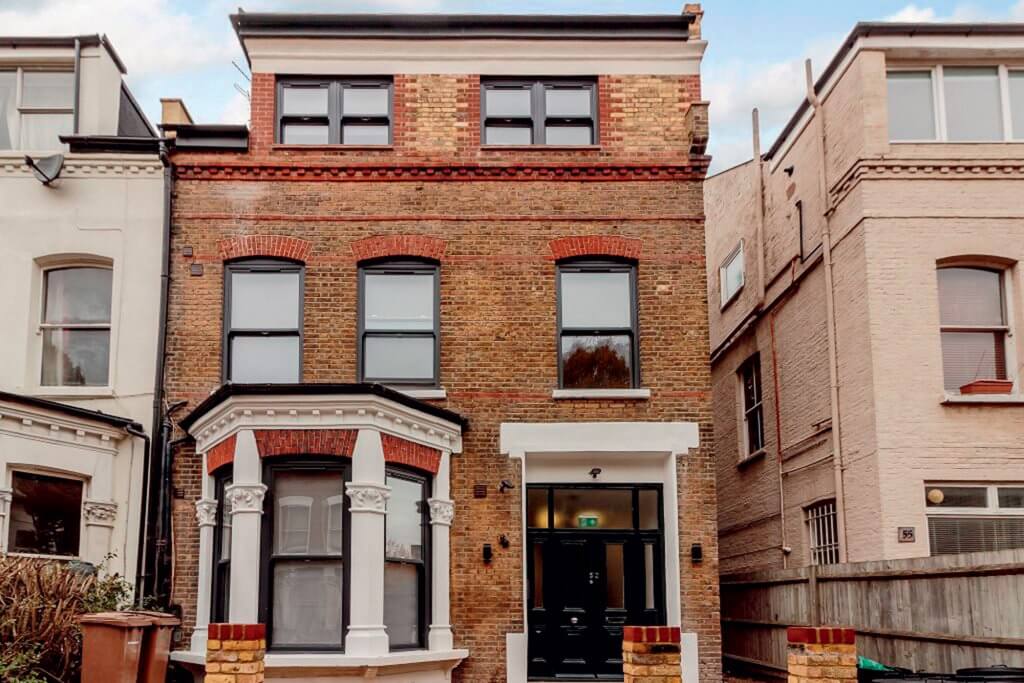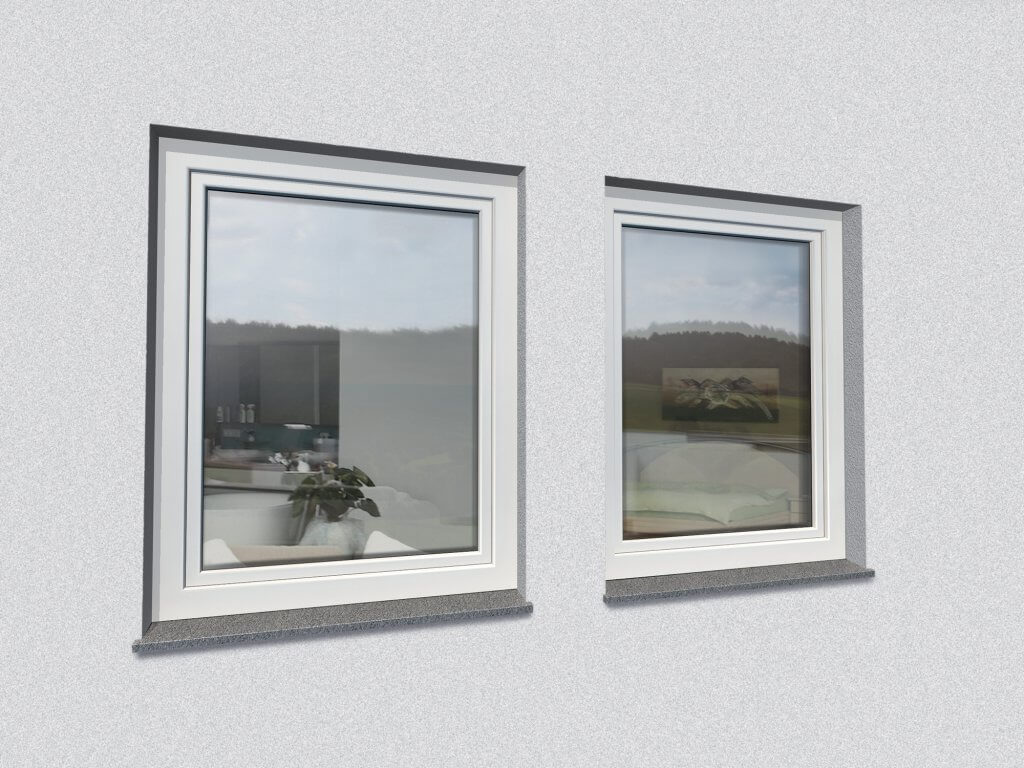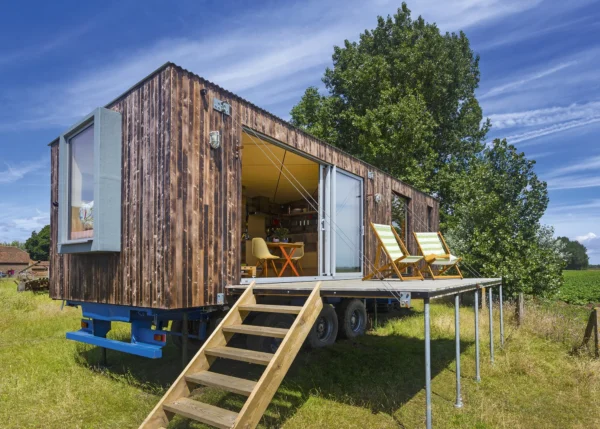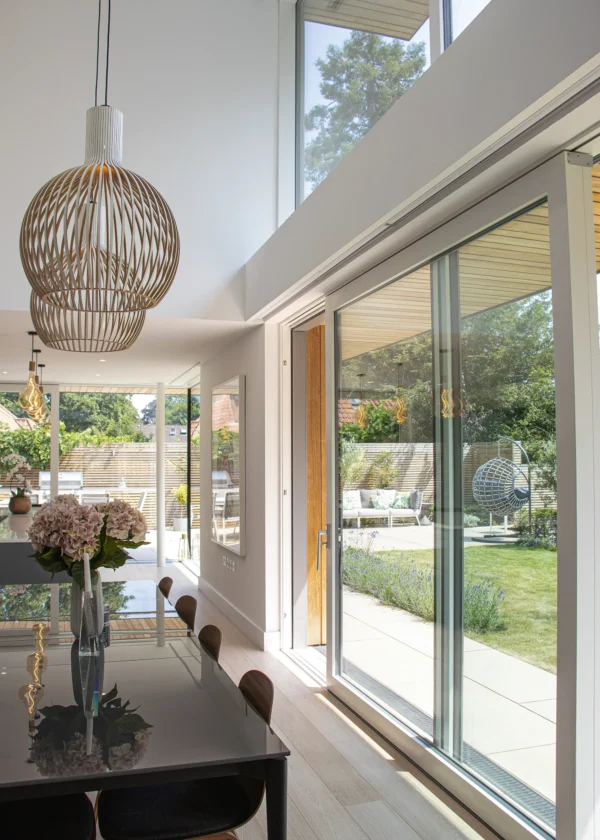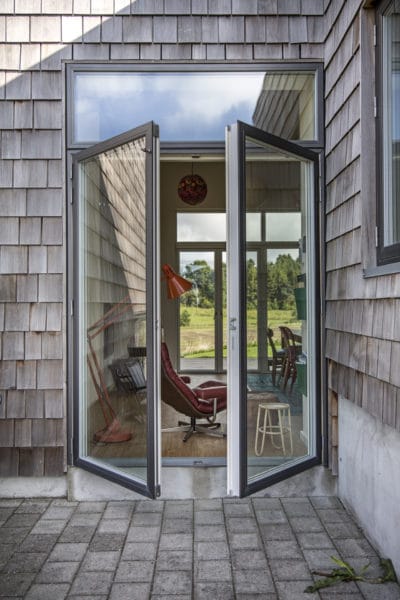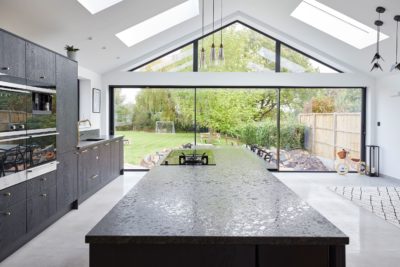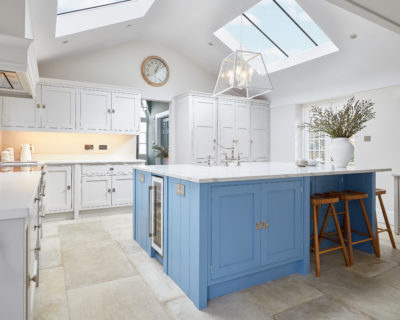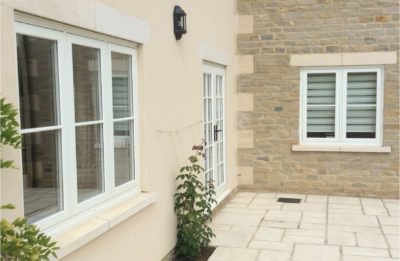Are PVCu Windows Right for your Home?
Visit almost any street in the UK, and you’re going to see plenty of PVCu windows. They’ve become the industry standard for lots of reasons: they’re inexpensive, secure, low-maintenance and it’s easy to find an installer.
But on that same street you’ll probably also find the reasons why PVCu gets a kicking from certain quarters: chunky frames that have replaced slim, flush timber originals and look wrong with the style of the house; and gleaming white finishes when perhaps another colour would be more appropriate.
Dig deeper for the right PVCu product, however, and it can harmonise with the wider architecture, both traditional and modern, and tick many other boxes, too. “It’s always been considered the cheap option – sometimes cheap and nasty, rather than simply low cost – but in the last 10 years, the industry has really picked up. It’s incredible what they’ve done,” says Build It expert Mike Hardwick.
Thinner profiles, better energy efficiency and improved longevity are all making plastic a viable option. “The majority of people I come across are on a tight budget. They want nice things but they don’t want to have to spend a fortune,” says Mike.
“You could decide to splash the cash on bespoke aluminium windows, but a stock-sized PVCu product from one of the more upmarket dealers takes out a lot of the compromise – you end up with a very good aesthetic that’s nowhere near as chunky as it used to be.”
The advantages
PVCu windows are available in every format, from sliding sash to casement and tilt-and-turn. While white might be the default, many companies offer coloured frames (including different hues inside and out) and a choice of finishes.
So, an anthracite-grey smooth-finish frame can do a very good job of mimicking aluminium, while a foiled woodgrain version in a soft green hue can look right for a rural property. “Colour is much higher on homeowners’ shopping lists now; and over the last five years I’ve seen our wood-grain volumes double,” says Ben Weber, who is managing director of Quickslide, which makes windows in a variety of materials.
Taking stock of PVCu’s recent developments, he says: “Profiles are better, with more stringent quality control; the glass has improved in terms of its thermal performance, too; hardware is now being designed to come with a 10-year guarantee rather than what used to be a one-year guarantee. All of this is happening, yet in most cases, market prices today are actually less than they were a decade ago.”
PVCu can also play its part in the creation of an airtight, thermally efficient property. “It’s often easier to get a lower U-value or better energy rating with a PVCu product than is achievable with aluminium,” says Ben. Look out for A-rated windows for good energy efficiency and opt
for triple glazing to have units with top performance.
Traditionally, the steel that reinforced PVCu windows acted as a thermal bridge, but new products are helping combat that. For example Neuffer’s Passivhaus-certified Energeto 8000 range is reinforced with carbon fibre instead. Some makers, such as Internorm, fill the internal cavities with additional granular insulation.
Design considerations
If you want a modern look to your home, with, say, a large, square top-hung or tilt-and-turn design, PVCu is a solid choice. Good-quality units are strong, clean-lined and low-maintenance. The frames will invariably be chunkier than with aluminium, but many self-builders are happy to sacrifice an inch or two of glass for the cost savings they’ll achieve with PVCu. Plus, slimmer-profile frames have been developed, such as Rehau’s Tritec 60mm.
Upgrade options for renovatorsIf you’re essentially happy with your home’s existing PVCu windows’ condition and performance but you can’t stand their white frames, you could get them painted by a specialist. Darker alternatives to white – such as anthracite grey, racing green or black – can have a surprisingly transformative effect. Nationwide operator UPVC Painters offers a range of standard hues as well as a colour-matching service, with a 10-year guarantee against discolouration and 15 years against cracking and flaking. However, bear in mind that poor-quality versions, without decent reinforcement, could end up suffering if the new colour soaks up more heat from the sun and causes greater thermal movement within the unit. If you’re happy with the frames, the glazing itself can also be upgraded. This might be for aesthetic reasons – for example, replacing old-fashioned textured privacy glass in a bathroom with a plain opaque style. Or it could be to attain better energy efficiency, eg by installing a product with a low-emissivity coating to retain warmth, such as Pilkington Optitherm S1 Plus. |
In the past, PVCu fell down when it came to recreating the elegance and specific decorative features of timber period windows, such as sashes. Attention to detail was minimal, partly because of the limitations of what could be done with extruded plastic – too-wide glazing bars stuck on to the outside, sash horns jammed on rather than looking like they were a continuous part of the top sash etc.
The best-looking products, from companies such as Quickslide, Roseview and Residence, now solve all those problems and do a very good job of mimicking timber in terms of their proportions.
Are they durable?
PVCu does not have the life expectancy of an aluminium or a (well-maintained) timber window. But quality has certainly improved, and these days the seals and opening mechanisms are more likely to fail before the actual frame.
“You can argue that plastic may not last as long, but now there are guarantees of 30 years available, which is comparable with what you’d expect from many softwood window suppliers,” says Mike Hardwick. “Make sure it’s an insurance-backed guarantee, though, not just any old cover. This will offer protection if the company goes bust.”
PVCu in protected areas
Houses in a local authority designated conservation area may be subject to an extra layer of planning regulation (referred to as Article 4 direction), which means that you will need permission to change or replace windows and doors. Sometimes (but not always, depending on the authority) PVCu replacements are considered acceptable, but your choice will have to be approved by planners.
Some manufacturers have used the Article 4 guidelines as the basis for improving their product designs, resulting in convincing PVCu frames with all the correct detailing.
Have a chat with your planning department’s conservation officer to discover what they find acceptable – and look around the area to see what others have done. For listed buildings, the more stringent rules mean that PVCu replacements will almost always not be allowed.
Top image: This Nottinghamshire home combines Rehau Total70 PVCu windows in anthracite grey with an oak-framed gable entrance
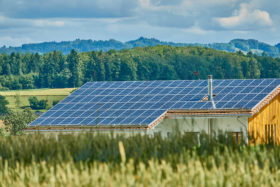



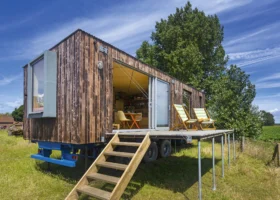
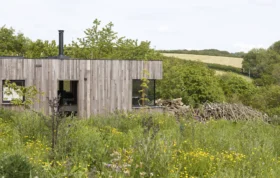

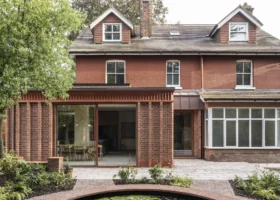
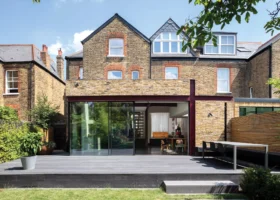
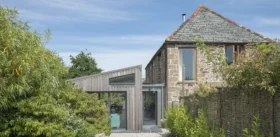



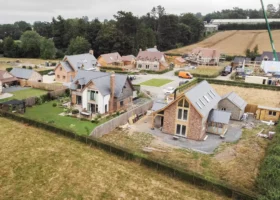

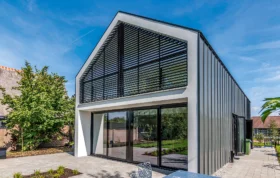

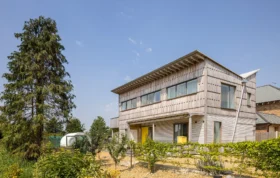
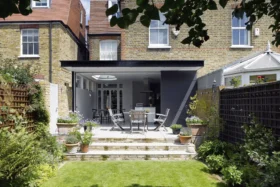
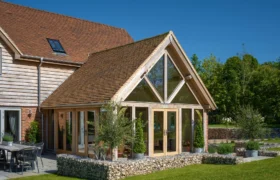
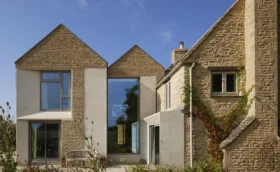
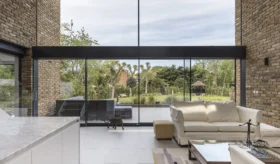
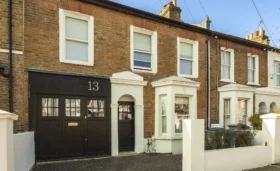
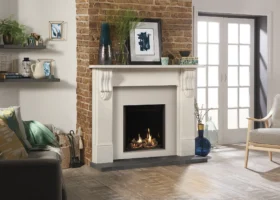

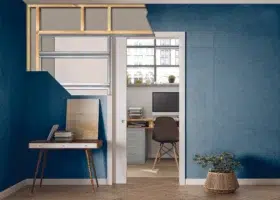









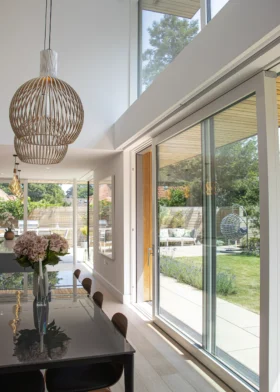
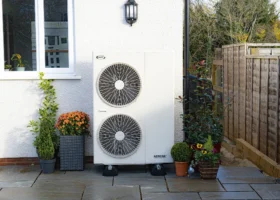

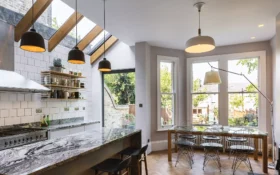
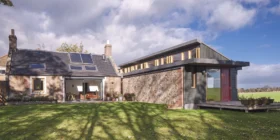


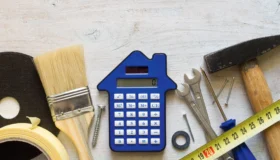
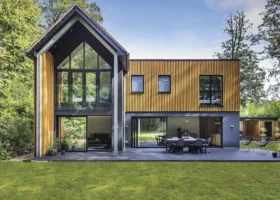
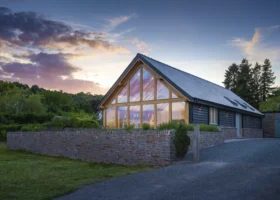
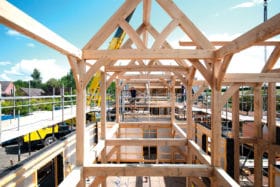
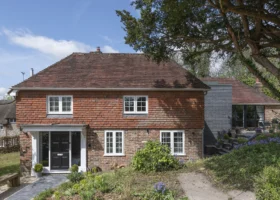
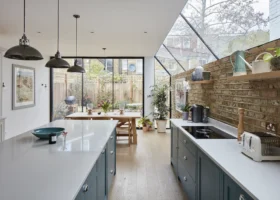

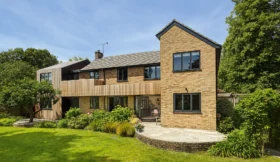
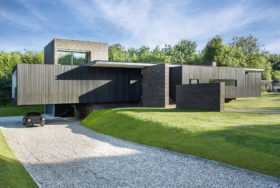
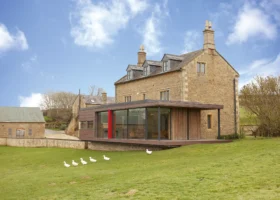
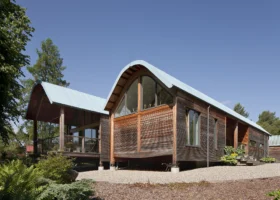

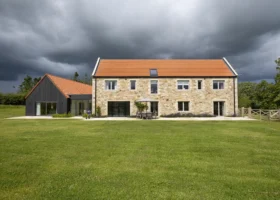
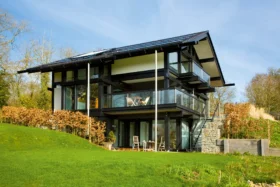



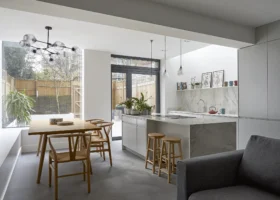

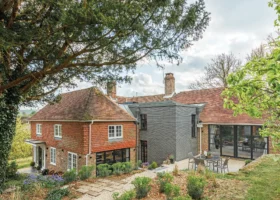
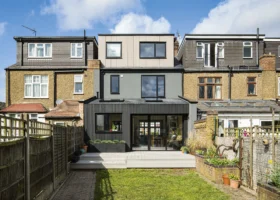
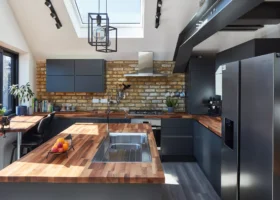
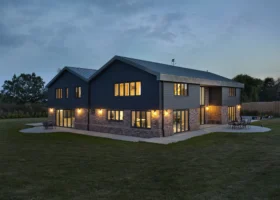





















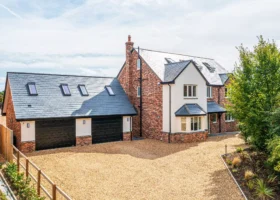
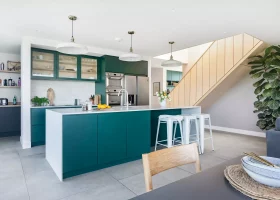










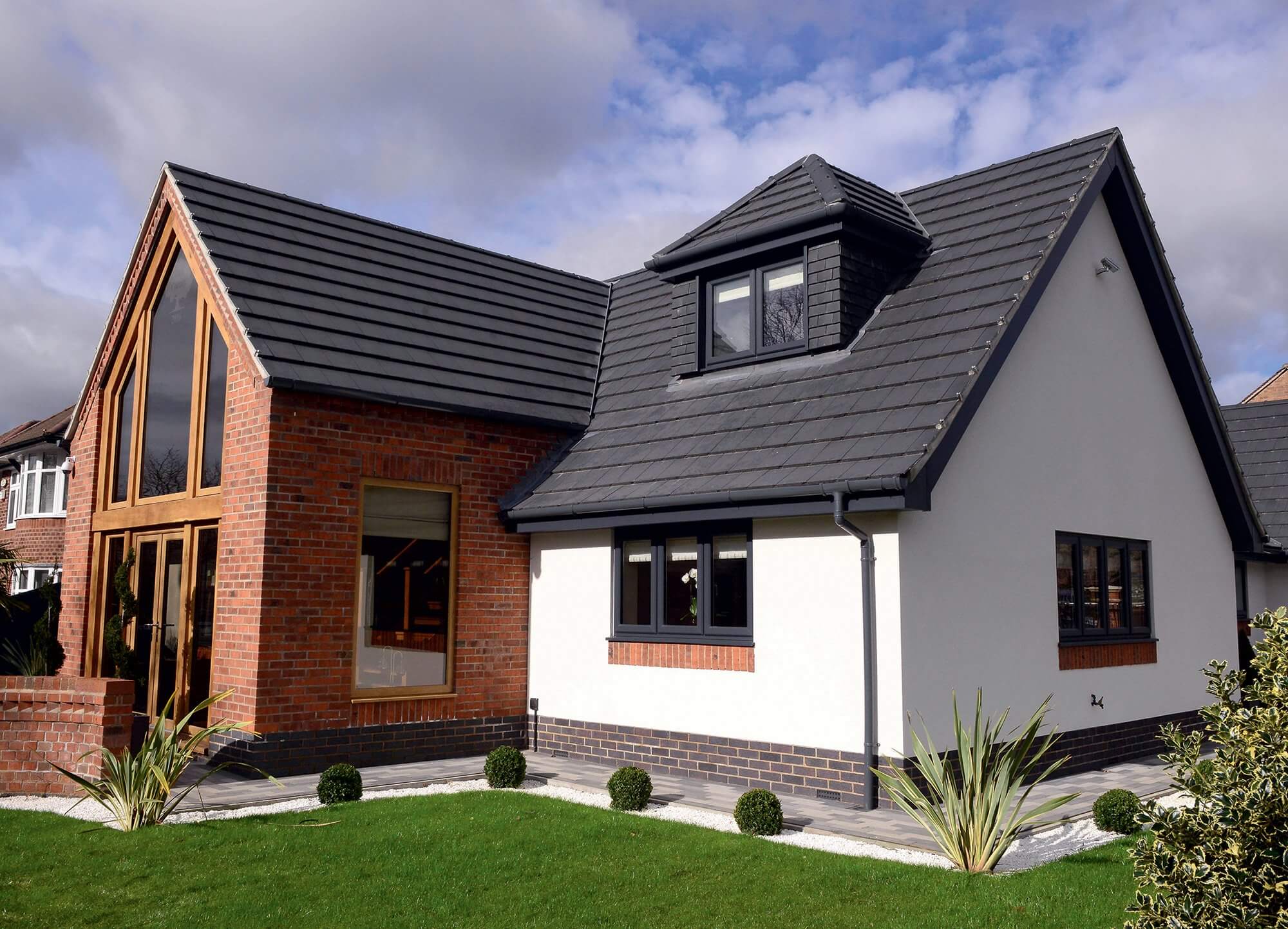
 Login/register to save Article for later
Login/register to save Article for later

